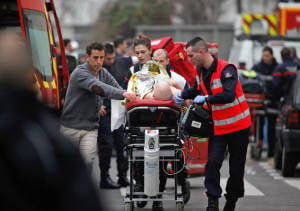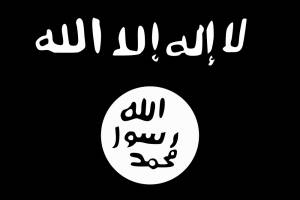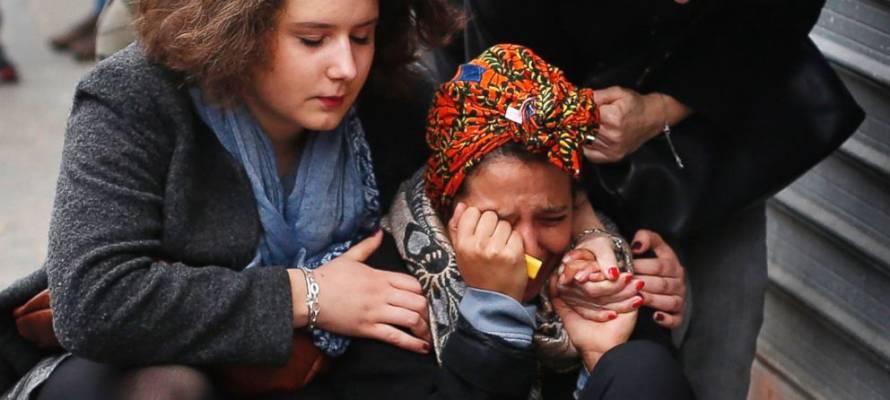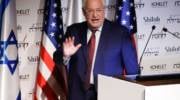A security expert believes that many lives could have been saved if not for anti-Israel bias that prevented France from using Israeli terror-tracking technology.
Not long after the deadly Islamic terror attack on the Charlie Hebdo satirical weekly in Paris in January 2015 and nearly a year before the simultaneous Islamic terror attacks in the city last November that killed 130 people and wounded hundreds more, French security officials rejected an Israeli company’s offer of terrorist-tracking, according to a FoxNews.com report, citing a security expert.
“The offer of data-mining technology that would allow French authorities to ‘connect all the dots’ in the Islamist extremist community was made to the Directorate-General for Internal Security (DGSI), France’s main intelligence agency. It is used to analyze and match up fragmented intelligence reports from several national and international databases, giving counter-terrorism agents the most up-to-date information on potential terrorists available,” the news site reported.
The offer was rejected. “French authorities liked it, but the official came back and said there was a higher-level instruction not to buy Israeli technology,” a well-placed Israeli counter-terror specialist familiar with the technology and the company behind it told FoxNews.com. “The discussion just stopped.”
Israeli Prime Minister Benjamin Netanyahu had offered assistance in the fight against Islamic terror, calling on “the entire civilized world to unite to defeat the plague of worldwide terrorism.”
“An attack on any one of us should be seen as an attack on all of us. All terrorism must be condemned and fought equally with unwavering determination. It’s only with this moral clarity that the forces of civilization will defeat the savagery of terrorism,” Netanyahu declared after the November attacks in Paris.

An injured person is rushed to hospital in Paris following Islamic terror attack at Charlie Hebdo headquarters in Jan 2015. (AP/Thibault Camus)
Indeed, last fall, a number of ISIS attacks were thwarted in Hanover, Germany, due to Israeli intelligence.
No official reason was given for France’s rejection of the offer, the source said, adding that there could have legitimate concerns about hacking vulnerability, although it seems more likely that politics was the reason.
“The European Union has blamed Israel for everything that is happening in the Middle East and stopped cooperation in regards to military, law enforcement and intelligence training and banning university cooperation which [generates] much of the technology to fight terrorism,” said Itamar Gelbman, a former IDF Special Forces and who is now a counter-terrorism consultant.
DGSI did not respond to requests for comment from FoxNews.com.
Kamal Nawash, an American attorney and president of the Free Muslims Coalition, said that European policy regarding Israel, including technology sharing, is an “example of the global community sending a message to Israel that its treatment of the Palestinians is unacceptable.”
“Israel would be wise to change its treatment of Palestinians by providing them with civil and human rights and pursuing a desegregation policy in general,” Nawash stated. “Otherwise, Israel may experience the same fate as South Africa during the apartheid era with all the countries of the world boycotting Israel.”
Such a statement demonstrates clear anti-Israel bias, considering the fact that Israel is not an apartheid state and treats all its citizens equally. Comparing Israel to apartheid-era South Africa and calling for BDS (boycott, divestment and sanctions) against the Jewish state has been classified by many as anti-Semitism.
“Israel has been facing terror threats since its inception in 1948,” said Gilles Perez, manager of HLS & Aerospace Unit at the Israel Export Institute. “In the 1970s, it was Israel’s national airline that pioneered the concept of an undercover security officer on every commercial flight long before it was adopted by other countries after September 11, almost 40 years later.”
Less than a week after the attacks in Brussels, Belgian law enforcement bought advanced surveillance and rapid view technology from Israeli company BriefCam. The technology is already in use at the Statue of Liberty and various U.S. airports, said Dror Irani, the company’s president and CEO.
“Israel is leading the field in counter-terrorism technology, but it’s not a popular country,” said Ari Zoldan, CEO of technology and e-commerce firm Quantum Network. “It is unlikely that Israel will suddenly become popular, but the need for better national security will force people to work with Israeli solutions.”
‘When They’re in Trouble, They Run to Israel’
Israel-based security training expert Daniel Sharon said that since the Brussels attacks last month there has been particular interest in airport and aviation security prevention concepts, interest that transcends popular protest.
“The goods are boycotted in European supermarkets,” Sharon said. “But when they are in trouble they run to Israel for help.”
By: United with Israel Staff
(With files from FoxNews.com)

Sign the Petition to Unite Against Islamic Terror
Petition to the United States and World Powers:
We urge our leaders to reject all supporters of Islamic Terror. Do NOT join forces with Iran, Hamas and other extremists to fight ISIS. Unite with Your Friends - Not with Your Enemies.
See our Privacy PolicyDo You Love Israel? Make a Donation - Show Your Support!
Donate to vital charities that help protect Israeli citizens and inspire millions around the world to support Israel too!
Now more than ever, Israel needs your help to fight and win the war -- including on the battlefield of public opinion.
Antisemitism, anti-Israel bias and boycotts are out of control. Israel's enemies are inciting terror and violence against innocent Israelis and Jews around the world. Help us fight back!























